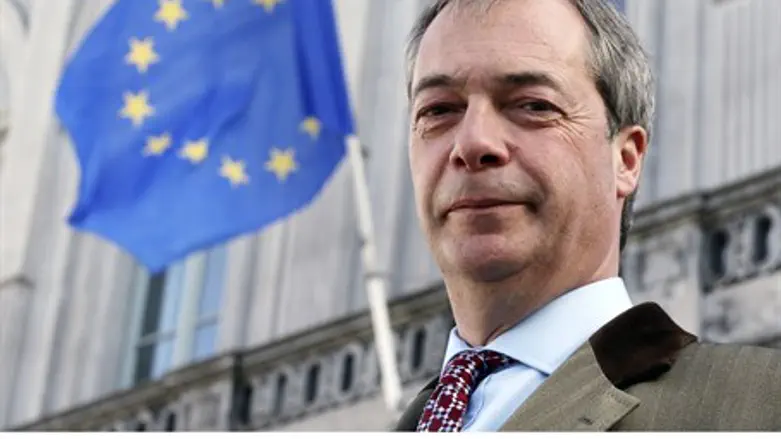
With just six days to go until the European Union parliament elections, to take place on 22-25 May, euroskeptic parties look set to make notable gains - to the chagrin of their europhile foes - but are struggling to find common ground.
Below is a rundown of some of the hot issues in the run up to the poll.
UK Independence Party: Choosing friends carefully
Nigel Farage, the colourful leader of Britain's leading euroskeptic party UKIP (UK Independence Party), spent the weekend hosing down fresh accusations of racism, following a radio interview which even sympathetic media labelled a "car crash".
Yet lost in the heat of the interview's race debate were some interesting asides on the looming internecine battle among eurosceptic populists after polls close on May 25.
To wield influence, euroskeptic parties will need to join forces on the floor of Parliament, but UKIP is being selective in the company it keeps.
It has steered clear of France's National Front (FN) because of past dalliances with anti-Semitism by party founder Jean-Marie Le Pen, but is currently partners with the Lega Nord, secessionists from northern Italy, in the Europe for Freedom and Democracy (EFD) grouping in Parliament.
That makes for an awkward relationship since the EFD's co-chair, the Lega's Francesco Speroni, has expressed sympathy with the ideology of Norwegian mass murderer Anders Breivik. The Front National looks positively progressive in contrast.
That inconsistency was not lost on FN leader Marine Le Pen (the daughter of Jean-Marie), who used a rare interview on British television to urge Farage to reconsider his position and join her grouping.
'Institutional war'?
What would happen if the EU's 28 member states were to thumb their collective nose at the European Parliament's leading political parties?
That scenario has again arisen in Brussels thanks to Herman Van Rompuy, president of the European Council which brings together the heads of government from each member state.
The issue at stake is who gets to select the president of the European Commission, which handles the day-to-day running of the EU.
The main parliamentary parties have put forward a short-list of five candidates for the post, saying this is more democratic than leaving it to the heads of state to choose the Commission head among themselves, as they have done up to now.
Speaking at the weekend, Van Rompuy reminded everyone of the strict official position - it is the Council which names the new Commission head, taking into account the result of the parliamentary elections. This person will need to be able to command "a majority in the European Parliament and a large majority in the Council," Van Rompuy said.
His comments point to what could quickly escalate into the mother of all institutional clashes between the Council and Parliament.
If the Council chooses a candidate that is not on Parliament's shortlist, it would be seen as a declaration of institutional war.
During the most recent election debate, Socialist leader Martin Schulz warned that if the member states "dared to nominate" a candidate not chosen by the parties, then Parliament's answer would be "clear": the Council's candidate would not be confirmed.
Hungary: fascism on the rise
While most media attention has been focused on the rise and rise of Hungary's radical, far-right party Jobbik, new polls in the country suggest Prime Minister Viktor Orban's ruling rightwing Fidesz party - a member of the European People's Party group in the European Parliament - will emerge victorious.
Leading pollsters Median and Ipsoso suggested Fidesz had increased its lead over its rivals since winning a parliamentary election on April 6, taking 56 percent, while Jobbik polled at 17 percent, overtaking the most popular leftwing party, the Socialists on 14-16 percent.
Jobbik is known for its xenophobic, anti-Roma and anti-Semitic rhetoric. It is also known for its outgoing MEP Csanad Szegedi who, upon discovering his family's Jewish ancestry, was forced from the party and decided to start living as a practicing Jew.